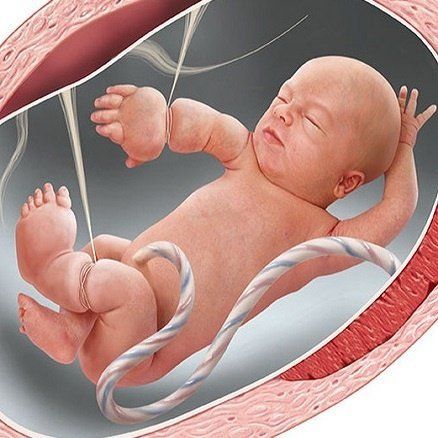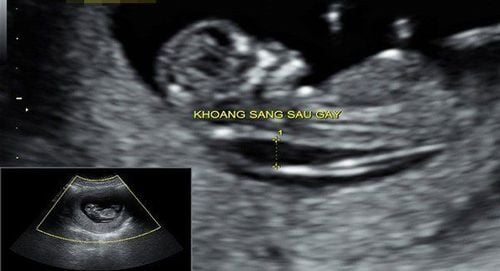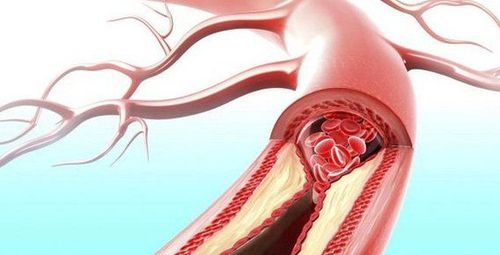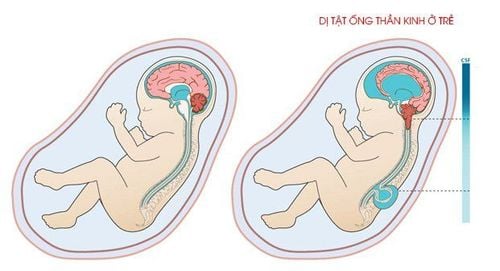This is an automatically translated article.
Amniotic band syndrome is a rare condition in which the fibrous bands on the membranes of the amniotic sac separate and become entangled in the fingers, toes, or other parts of the fetus. This contraction can cause a variety of problems, depending on where the amniotic fibers are located and how tight they are. However, there are many cases where babies are born with functional defects on parts of the body.1. What is amniotic band syndrome?
While a baby is in the womb, he or she is surrounded and protected by a fluid-filled sac called the amniotic sac and amniotic fluid. In amniotic band syndrome, thin bands of tissue form inside this sac. They are similar in appearance to rubber bands, traps that catch and wrap around babies or parts of the body.Where amniotic bands occur most often around a baby's arm or leg or can also wrap around the extremities. Others may form around the head, face, chest, or abdomen. The contractions from the fibrous bands can affect the baby's formation during fetal life.
If the constriction of the amniotic bands is not excessive, as the fetus grows, these fibers may also form wrinkles or indents observed in the skin but will not cause problems on fertility limb activities. In most cases, these bands affect only the outer layers of soft tissue, like baby's skin and the tissue just under the skin. However, tighter bands can go deeper such as to the bone, embolism reduces blood flow to parts of the body. As a result, the extremities are amputated because they do not receive enough blood or destroyed due to necrosis.
On the other hand, amniotic band syndrome is more dangerous if it affects the baby's head, face, chest or abdomen, causing more serious problems for the baby's development than the extremities. Bands of fibers wrapped around the head or face can cause skull deformities, cleft lip and palate, and cleft palate.
Loops around the abdomen can cause malformations of internal organs, such as the kidneys or stomach, or on the ribcage will cause deformity or may cause heart defects. However, the most serious and life-threatening complication of amniotic band syndrome is when the cord wraps around the umbilical cord and can lead to fetal death.
The cause of amniotic band syndrome is still unknown, but it is not believed to be hereditary. Statistics show that amniotic band syndrome occurs in about 1 in 10,000 to 15,000 babies and occurs more often in fingers than toes.
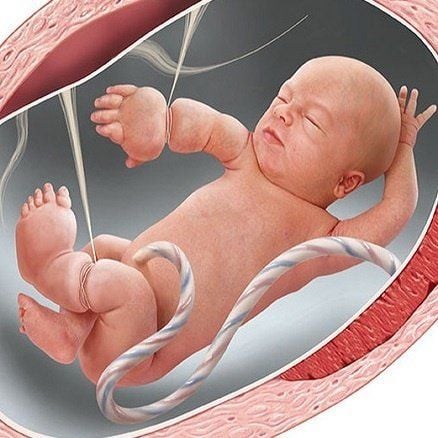
Nguyên nhân gây ra hội chứng dải sợi ối là gì vẫn chưa được biết rõ ràng
2. What are the symptoms of amniotic band syndrome?
Amniotic band syndrome has many different manifestations with different degrees. At a mild level, the symptom of amniotic band syndrome is sometimes difficult to recognize because it is just a round indentation, many circles around a child's finger or arm or toe.If the bands are wrapped deeper and tighter, it can cause some serious problems such as swelling, edema by restricting the flow of lymph or veins or blocking the arteries, affecting the blood vessels. limb development. In severe cases, the bands can cause amputation or deformities of the body such as skull, face, chest and abdomen.
3. How is amniotic band syndrome diagnosed and treated?
In some typical cases with tight wrapping, amniotic band syndrome can be diagnosed just before birth by ultrasound. However, most cases are only diagnosed at the time of birth with deformed organs or missing limbs.At this point, the treatment of amniotic band syndrome will be tailored to each individual child and require a long adjustment period. At mild levels, amniotic bands do not cause any symptoms or health problems and do not require treatment. However, if it is severe, surgery will be the only option to correct the structural and functional defects of the body.
Some babies even need surgery soon after birth, to correct or prevent problems caused by the bands, such as reduced blood flow and nerve compression; Sometimes more than one surgery is needed. If the degree of spasm does not require urgent intervention, the doctor may delay surgery until the baby is at least 6 months old.
In addition, babies born with amniotic band syndrome may also be considered for other treatment options as follows:
Surgery to correct bone displacement to a better position (reconstructive surgery) organization); Pressure garments help control swelling and restructure; Devices to support the function of the limb such as prosthetics, prostheses.

Một số em bé cần phải được phẫu thuật ngay sau khi sinh, để khắc phục hoặc ngăn ngừa các vấn đề do các dải sợi gây ra
4. What is the long-term prognosis of amniotic band syndrome?
Long-term outcomes for babies born with amniotic band syndrome depend on the areas affected and the severity of the birth defects.However, most cases of amniotic band syndrome involve the limbs and usually have a stable outcome, even in cases of amputation. In very rare cases, a baby can have severe or irreparable malformations of major organs such as the skull, heart, rib cage, and abdomen, and it can be fatal.
In summary, amniotic band syndrome is a rare condition that can severely affect a child's overall development and later life. However, with advances in surgical intervention techniques and assistive devices, body defects caused by amniotic band syndrome can be partially corrected and children still have the opportunity to reconcile. enter children of the same age.
In order to detect amniotic band syndrome early, pregnant women should have ultrasound and regular check-ups to detect and intervene early when the baby is born. In order to protect the health of pregnant women and babies during pregnancy, Vinmec International General Hospital provides a package of maternity services as a solution to help pregnant women feel secure because of the companionship of the medical team. throughout pregnancy. When choosing Maternity Package, pregnant women can:
The pregnancy process is monitored by a team of highly qualified doctors Regular check-ups, early detection of abnormalities The Package Maternity package helps to facilitate convenient for the birthing process Newborns get comprehensive care
Please dial HOTLINE for more information or register for an appointment HERE. Download MyVinmec app to make appointments faster and to manage your bookings easily.




